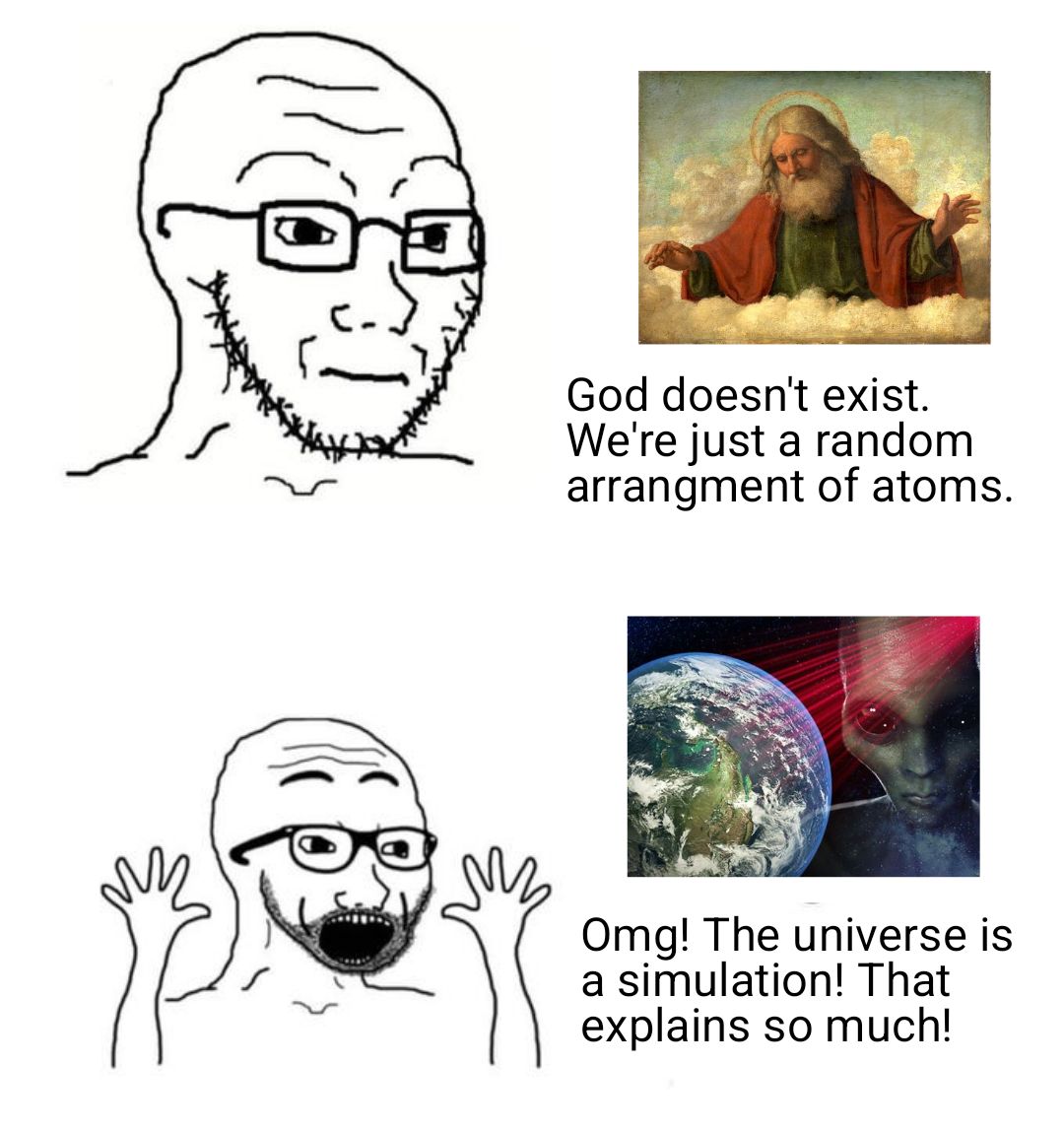this post was submitted on 22 Dec 2023
400 points (76.9% liked)
Memes
45726 readers
1008 users here now
Rules:
- Be civil and nice.
- Try not to excessively repost, as a rule of thumb, wait at least 2 months to do it if you have to.
founded 5 years ago
MODERATORS
you are viewing a single comment's thread
view the rest of the comments
view the rest of the comments

The arrogance lies in the claim of knowing the unknowable. I can't know for sure how the universe formed. I can't know for sure what happens when we die. I can't know for sure that there is or is not a force guiding the world around me and the events that occur. But if you believe in a god (or any form of faith that has answers to these questions or questions like them) then you are saying "I don't know, but I know who does", or to simplify "I don't know, but I know".
On the other hand if you read a study, or a science article, that says it has found evidence of the big bang and you say "I read in an article that a research team has found evidence of the big bang." well now you're claiming that you know you read an article. That's a claim that is easy to accept and contains no contradictions. It doesn't take much convincing for me to say that I do think that you read an article. No arrogance, just a declaration of an action.
The nuance here is that there is a difference between reading a study about the big bang, and believing in the big bang. If you're being completely scientifically honest, you know that there is a possibility it could all be wrong. It might be a slim possibility. But it is impossible for all of us to examine all of the evidence in all of science, so while it looks like belief, it is instead maintaining a perspective that the people who are studying it are doing their best, and so far their best is pointing in a direction. That's all. No need to burn people at the stake, no need to write anything in stone. Just people looking for clues and reporting that the clues are all indicating a given conclusion. Or maybe the clues they're finding are pointing all over the place. Or maybe they did the math and the math said that they needed nine spacial dimensions to make an idea work but if they had them, all the clues would point to a given conclusion. And then people living in reality said "how do we test something in nine spacial dimensions?" and all the shrugs eventually resulted in youtube videos that made me say "huh, that's interesting, it looks like maybe nobody knows how that works".
One last stupid question: Have you ever noticed how the faithful hate it, or at least express friction, when you bring up things that would bring their explanatory framework crumbling down? Meanwhile scientists are like "This poses fundamental questions about our theory of blabblegabble. I'm super excited, I might have some really serious questions to answer very soon, and we might need to really do some serious sciencing. Where's my [insert stereotypical scientific tool here]?"